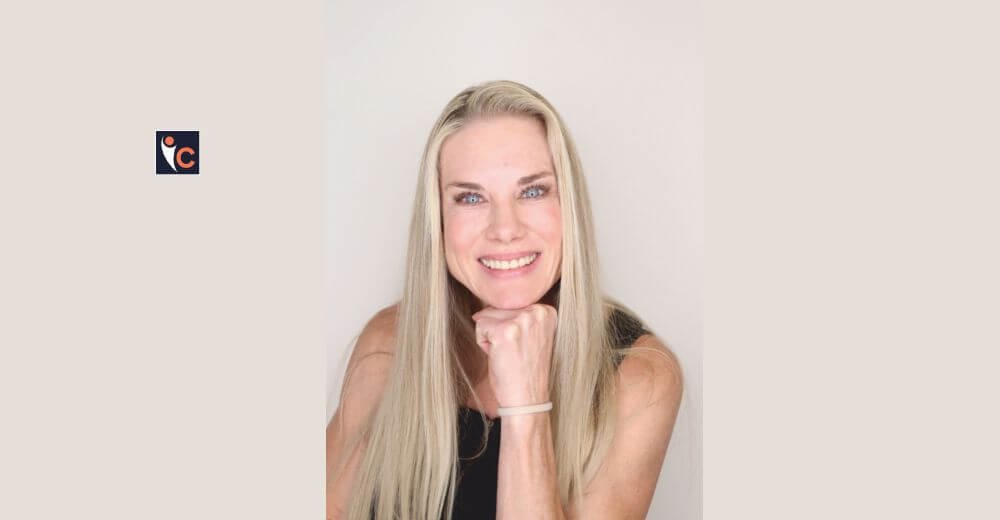Shannon Davis, a Registered Dietitian at the American Diabetes Society, has always been fascinated by food, health, and fitness. Her journey into dietetics emerged from her passionate interest in understanding how dietary choices influence body health beyond basic calorie counting. “I wanted to understand how food truly impacts health and help people use it as a tool for better living,” she shares. Eighteen years ago, she became a registered dietitian, working in various specialties, including transplant, nephrology, bariatrics, and sports nutrition. But over time, she noticed a troubling pattern—many conventional dietary guidelines did not lead to real health improvements.
This realization led her to focus on metabolic health, where she now helps people reverse insulin resistance, type 2 diabetes, and other chronic conditions through a low-carb diet, intermittent fasting, and a root-cause approach. “Seeing the transformative impact of personalized nutrition—not just managing symptoms but truly reversing disease—fuels my passion every day,” she says. Her mission is to assist people in regaining health control by teaching them updated nutritional knowledge that breaks free from traditional dietary advice.
Let’s explore expert nutrition strategies with Shannon!
What Therapeutic Medical Nutrition Looks Like
Every day, Shannon helps people heal by addressing the root causes of their health conditions rather than just treating symptoms. “Many chronic issues, including obesity, high cholesterol, fatty liver, PCOS, migraines, and even skin tags, stem from metabolic dysfunction,” she explains. Through medical nutrition therapy, she teaches individuals how their food choices and meal timing affect their overall well-being.
Shannon’s approach includes low-carb nutrition, intermittent fasting, and strategic dietary changes. “By making the right dietary shifts, people can reverse these conditions naturally—without relying on medications that only mask the problem,” she states. Her goal is to help people regain their health through a natural and sustainable approach.
Creating a Personalized Nutrition Plan
Each person’s journey to better health is unique, which is why Shannon takes a personalized approach. “I begin with a full assessment, looking at their medical history, medications, dietary habits, lifestyle, and goals,” she explains. She then develops a nutrition plan that fits their needs while focusing on long-term success.
“The key is to create a plan that not only improves their condition but also fits seamlessly into their daily life,” she says. By incorporating low-carb meals, intermittent fasting, and targeted supplementation, she helps clients take charge of their health in a way that is both practical and effective.
Breaking Common Nutrition Myths
There are many misconceptions about medical nutrition, and Shannon is passionate about setting the record straight. “People often believe that weight loss is just about calories in versus calories out,” she says. Other common myths include:
- High-fat foods are always unhealthy.
- Low-fat, low-sodium diets are the best choices.
- Clinical nutrition is only about losing weight.
- Malnutrition only affects people who are underweight.
- Eating healthy is too expensive.
“These ideas often prevent people from making real progress in their health,” she says. Her goal is to educate people on the power of proper nutrition so they can make informed choices.
Exciting Trends in Medical Nutrition Therapy
The world of medical nutrition is constantly evolving, and Shannon is excited about new advancements. “Therapeutic carbohydrate reduction and ketogenic diets are gaining recognition for their role in metabolic health,” she shares. The reevaluation of dietary fats is also shifting how people view nutrition. “For years, fats were demonized, but now we understand that healthy fats are essential for overall well-being,” she explains.
Another exciting trend is the rise of personalized nutrition plans. “No two people are the same, so their nutrition plans shouldn’t be either,” she says. Customizing food choices based on individual needs is proving to be a powerful tool in improving health outcomes.
Working with Healthcare Professionals
Shannon understands the importance of teamwork in patient care. “Interdisciplinary communication is key,” she states. As an outpatient dietitian, she regularly collaborates with other healthcare professionals to ensure that her clients receive the best care.
“If a patient is under the care of another clinician, I always discuss my recommendations with them,” she shares. This includes updating doctors on a patient’s progress and suggesting necessary medication adjustments based on their nutrition plan. By working together, healthcare providers can create a more effective and comprehensive approach to patient care.
Simple Steps to Improve Health Through Nutrition
For those looking to improve their health through medical nutrition, Shannon offers practical advice. “Adopt a food-first approach—prioritize whole, unprocessed foods that are rich in fiber, protein, and healthy fats,” she advises. Another crucial step is understanding insulin resistance. “It affects 93% of Americans and cannot be fixed with medication alone,” she emphasizes.
Lifestyle changes are also key. “Making small, sustainable modifications can have a huge impact,” she says. However, with so much misinformation about nutrition, she encourages people to seek professional guidance. “Working with an expert can help you navigate the overwhelming amount of advice out there and find what truly works,” she states.
What Future Dietitians Need to Know
For aspiring dietitians, Shannon emphasizes the importance of developing a strong foundation. “You need to understand nutrition science, clinical assessment, and behavior change,” she says. She also highlights the value of strong communication skills. “Being able to connect with clients and explain concepts in a simple, effective way is critical,” she adds.
Other important skills include adaptability, research, and the ability to think outside the box. “The field of nutrition is always evolving, so being open to learning is essential,” she says. She also stresses the importance of ethical and moral values. “At the end of the day, this job is about helping people improve their health and their lives,” she states.
Building a Virtual Metabolic Health Practice
After working in corporate settings for 16 years, Shannon took a bold step and built her own virtual metabolic health practice. She uses social media to reach and educate large audiences about true metabolic health. “I teach people about low-carb nutrition, intermittent fasting, and the power of two all-natural supplements,” she shares.
Her approach has helped countless individuals regain their health. “I’ve spent nearly two decades helping people reverse insulin resistance, type 2 diabetes, high cholesterol, and hypertension—without relying on medications with harmful side effects,” she states.
The Power of the Feel Great System
One of Shannon’s key tools is the Feel Great System, a powerful protocol designed to support metabolic function. “The system includes two key products: Unimate and Balance,” she explains. Unimate is a highly concentrated yerba mate extract that boosts GLP-1 by 60–70%, helping with fat metabolism, appetite control, insulin sensitivity, and mental clarity.
Balance is a pre-meal fiber blend that reduces blood sugar spikes, lowers post-meal glucose by 34–37%, improves insulin sensitivity, and supports gut health. “When combined with fasting and whole-food nutrition, this system helps people regain control over their health, break free from sugar addiction, and sustain long-term weight loss—without restrictive dieting,” she states.
A Mission to Change Lives
Shannon’s work goes beyond diet plans and meal recommendations—her goal is to change lives. “There’s no better feeling than empowering someone to take control of their health and break free from outdated, ineffective dietary advice,” she says. By focusing on education, personalized nutrition, and a sustainable approach, she is helping individuals achieve real, lasting health improvements.
Through her virtual practice, social media outreach, and innovative nutrition strategies, she continues to inspire and guide countless people on their journey to better health. “When you understand how food truly impacts your body, you unlock the power to heal from within,” she says. And for Shannon, that’s what true nutrition is all about.










